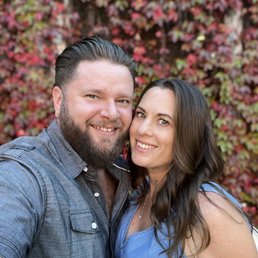Alzheimer’s disease and other forms of dementia present many challenges for patients as well as their loved ones. If you feel overwhelmed caring for a person with Alzheimer’s or dementia, take heart. The more you know about the disease and the more support you get, the more prepared you will be to make sound decisions about which care choices are best.
The continued deterioration of memory is one of the signs that Alzheimer’s is getting worse. Full-time 24-hour care will be needed by the time Alzheimer’s reaches advanced stages. Looking ahead and preparing for such an eventuality can make the decision-making easier.
Alzheimer’s disease is a specific form of dementia that gets progressively worse. In addition, Alzheimer’s residents typically requires more care than those with dementia, and require a secure, locked down environment.
The degree of care and support needed by seniors with Alzheimer’s tends to grow as the disease progresses. Although it’s natural for seniors to wish to remain at home, full-time care is eventually necessary for someone afflicted with Alzheimer’s.
Alzheimer’s facilities offer long-term medical care in a fully staffed and monitored facility. Such communities include secure areas to help ensure the safety of residents and prevent them from wandering and getting lost.
Alzheimer’s residents also usually need help managing prescription medications, as well as day-to-day activities like eating, bathing, dressing and grooming.
Care for those with Alzheimer’s is provided in secure setting such as an assisted living community or nursing home. Alzheimer’s residents may live in private rooms or semi-private apartments. Structured activities are led by trained staff members who understand the needs of seniors suffering from memory disorders.
Also known as Memory Care Units, Alzheimer’s Special Care Units (SCUs) are made for people who suffer from Alzheimer’s disease and other forms of dementia. There are many different types of Special Care Units, which are typically found in residential care communities.
Some states have passed laws that require the facility to disclose the specific services provided by their Special Care Units, including professional staff and any specialized activities. Next time you tour a senior living community, just ask for their Special Care Unit Disclosure form to find out the services offered by their SCUs.
Residents receive help with health care, household chores, and personal care. Assisted Living communities generally offer medical monitoring as well as daily activities and care. Services can include eating, dressing, hygiene, bathing, toilet usage, medication management, mobility, and shopping. Amenities often include social and recreational activities.
By providing a combination of residential housing, day-to-day assistance, and health care services, Assisted Living communities create a stimulating, supportive environment for residents. Seniors can preserve their independence while enjoying an enhanced quality of life. Assisted Living communities also go by other names. You may find them described variously as assisted care, residential care, basic care, or adult living facilities, depending on where you look. Assisted Living is also sometimes offered as part of a larger Independent Living community.
Different states have their own licensing and regulations that govern assisted living providers. Rates for Assisted Living Communities are based on the geographic location as well as the type and size of the residence. Some charge a flat rate with additional fee for special services. Most assisted living communities charge a monthly rate.
The continued deterioration of memory is one of the signs that Alzheimer’s is getting worse. Full-time 24-hour care will be needed by the time Alzheimer’s reaches advanced stages. Looking ahead and preparing for such an eventuality can make the decision-making easier.
We’ll set up a meeting with your local Senior Living Counselor.
We’ll meet with you in person to learn about your future living goals and needs.
Visit local communities at your own pace with your personal Senior Living Counselor.
Connect with a professional concierge specialist who excels in matching seniors with the ideal living arrangements tailored to their needs, preferences, and lifestyle in your desired location.

Angela L. Clark
MBA, RN, Owner & Family Concierge Specialist

Julie Delillo
Family Concierge Specialist

Lisa Miller
Family Concierge Specialist
Families Loving Their Choice

What a breathe of fresh air knowing that this company provides such a personal touch. They treat their clients with respect and compassion. They take into consideration the details that other companies so easily leave out. It’s a shame more companies aren’t like them, especially working with such fragile situations. They are the best of the best in my eyes. I had the chance to meet the owner and she embodies trust, love and passion for finding the best living/care situation for her clients. Angela is the type of business owner that would literally give you all she has to find what you need. We look forward to a continued relationship with you guys! Cheers!

My wife and I love my mother-in-law but we didn’t have the assisted living expertise to be able to evaluate what’s best for her. Angela (our counselor from LYC) drove out twice and talked to mom. Angela used her terrific interpersonal skills combined with her medical expertise to determine exactly what’s right for mom. Literally dozens of factors were taken into account to find the right place. What impressed me the most is LYC took a comprehensive approach. Both emotional and physical well-being needed to be fully satisfied. Angela showed us a couple places and we eventually found the perfect community for mom. To be brutally honest, it’s not only worked out great for mom but also for us.

Thank heaven we found Living Your Choice!
Recently, our 90-year-old mother became ill and wasn’t going to be able to live on her own anymore, as she’d been doing. My sisters and I were trying to find an assisted living arrangement for her in San Diego, and we were quickly overwhelmed by the options. (It’s very difficult to find a place on your own, just going by the info you see online. Many places don’t post their rates, so you have no idea if you’re looking at something within your budget or not.) I put out a plea on Facebook for any local friends who could recommend a good assisted living place, and a friend suggested we contact Living Your Choice for help.

I wanted to take a moment to thank Living Your Choice for helping me with my dad Bill.
Thank god I had heard of Living Your Choice through a mutual friend. I called and found an expert staff that was able to help me right away. We spent over an hour on the phone discussing my dad, his life, his likes and dislikes, his medical issues, his budget and what he was going to need moving forward. Right away I felt so much better, they understood what was going through and agreed to meet the next morning at the hospital with us both.
Find the answer to your assisted living questions by contacting a senior living specilist:

View our helpful guide of questions to ask before visiting a senior living community.
Assisted living provides seniors with personalized care, social opportunities, and a safe, supportive environment that enhances independence and quality of life.
Communities that cater to Alzheimer’s patients provide specialized services including personalized care plans, cognitive therapies, structured activities, and secure environments. Staff receive specific training in Alzheimer’s care, ensuring that interventions are designed to reduce agitation and confusion while promoting dignity and quality of life for residents facing memory loss challenges.
While Alzheimer’s care programs share many similarities with memory care, they are often more narrowly focused on the challenges associated with Alzheimer’s disease. This specialization may include tailored activities, nutritional plans, and security measures specifically designed for Alzheimer’s patients. Staff training and individualized care plans ensure that the unique symptoms and progression of Alzheimer’s are effectively managed.
Specialized Alzheimer’s communities provide a secure, structured environment that is sensitive to the cognitive and emotional needs of residents. These communities offer targeted therapies, constant supervision, and a range of activities designed to stimulate memory and reduce behavioral challenges. This supportive setting fosters improved quality of life and greater peace of mind for both residents and their families.
Safety for residents with Alzheimer’s is maintained through secure facility designs, constant monitoring, and individualized care strategies. Staff are trained to recognize early signs of distress and to respond appropriately to prevent wandering or accidents. The environment is specifically designed to reduce triggers that may lead to confusion, ensuring residents are kept secure and well-protected at all times.
Families play a crucial role in Alzheimer’s care by actively participating in care planning, providing personal history, and maintaining regular communication with the care team. This partnership helps tailor the care environment to the resident’s unique needs and preferences, ensuring that the interventions remain compassionate and effective. Family involvement also provides emotional support and continuity of care.
Care providers address behavioral changes by implementing personalized care plans that incorporate non-pharmacological interventions, structured routines, and environmental adjustments. Regular staff training in de-escalation techniques and compassionate communication helps manage agitation and confusion. These strategies work together to ensure that residents experience a calming, supportive atmosphere that minimizes disruptive behaviors.
Activities designed for Alzheimer’s communities often include memory-enhancing exercises, music therapy, art projects, and social interactions. These activities are carefully structured to engage residents in a stimulating yet non-overwhelming manner, encouraging cognitive function and emotional stability. Regularly scheduled activities help maintain a sense of routine and offer meaningful engagement for residents.
Medical needs for individuals with Alzheimer’s are managed through a comprehensive care approach that includes regular health assessments, medication management, and coordination with local healthcare providers. Staff closely monitor changes in health and cognitive function, ensuring timely intervention when necessary. This proactive approach ensures that residents receive personalized medical care that supports overall well-being.
Yes, Alzheimer’s care is highly individualized. Care providers develop personalized care plans based on each resident’s stage of the disease, personal history, and specific needs. This customization allows for targeted interventions, specialized therapies, and tailored activities that support both cognitive function and emotional well-being, ensuring that each resident receives the most appropriate and compassionate care.
When selecting an Alzheimer’s care community, consider factors such as staff expertise, security measures, the range of therapeutic activities, and the overall environment’s warmth and compassion. Visiting the facility, asking detailed questions about care protocols, and speaking with other families can help ensure that the community meets the specialized needs of those with Alzheimer’s, providing a safe and nurturing home.








